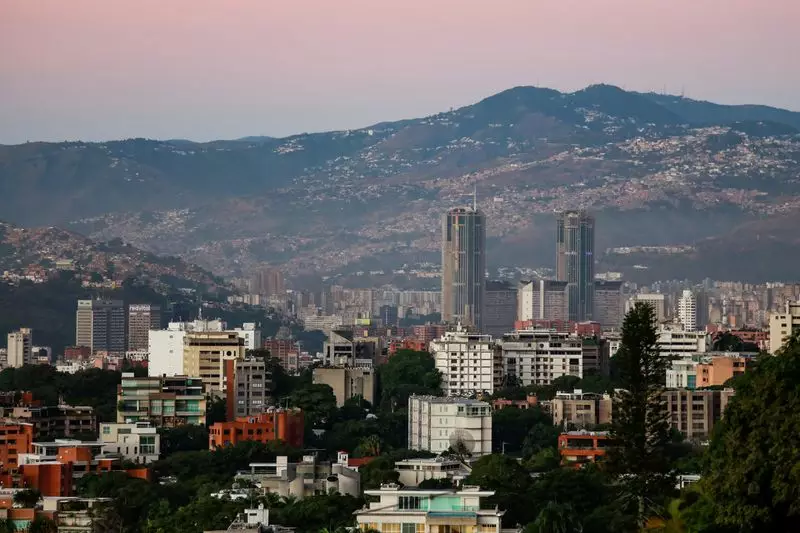In a significant continuation of its foreign policy towards Venezuela, the United States has escalated sanctions against eight high-ranking officials tied to President Nicolás Maduro’s administration. Announced on the day of Maduro’s inauguration for a contentious third term, these sanctions highlight the toxic political environment in Venezuela, characterized by claims of a fraudulent electoral process and widespread allegations of human rights abuses. This punitive measure reflects the Biden administration’s commitment to hold the Maduro regime accountable, especially after the declared results of the disputed election held last year.
The reality is that both the Maduro-led Socialist Party and the opposition have staked their claims to victory in the deeply polarized political landscape. The newly sanctioned officials, including Hector Obregon, the head of the state oil company, PDVSA, embody the regime’s reliance on state institutions to maintain power amidst escalating dissent and international scrutiny.
The sanctions imposed by the U.S. were not isolated; other allies, including the United Kingdom, the European Union, and Canada, have taken similar steps against Venezuelan officials. This coordinated international response indicates a broader consensus among Western nations regarding the need to challenge Maduro’s legitimacy and call for democratic reforms. Acting Under Secretary of the Treasury Brad Smith’s statement underscores a unified stance to support the Venezuelan populace’s desire for genuine leadership, effectively framing the sanctions as an act of solidarity rather than mere punishment.
However, it raises important questions about the real impact of these sanctions on the Venezuelan populace. As the Maduro government claims, these measures might be perceived as an “economic war,” complicating the situation for ordinary citizens already grappling with severe economic challenges. The narrative spun by Maduro and his allies often blames Western interference for the nation’s distress, complicating international efforts to provide meaningful humanitarian support.
The aftermath of the election remains harshly contested between the Maduro administration and its opposition. While the government insists that Maduro secured a victory, the absence of detailed vote tallies has left many skeptical, prompting calls from international observers for deeper investigations. The political atmosphere, mired in accusations and skepticism, is further exacerbated by the arrest threats against opposition figures like Edmundo González, a presidential candidate who has garnered international backing and is viewed by many outside Venezuela as the legitimate leader.
Such harsh tactics employed by the regime against dissenting voices illustrate the precarious nature of democracy in Venezuela. The rising tide of authoritative measures reflects Maduro’s determination to consolidate power, even at the expense of democratic principles. In this complex scenario, the role of international sympathizers becomes pivotal, as they amplify the opposition’s voice and rally support against the oppressive regime.
The timing of these sanctions and the reward increase for Maduro’s capture—from $15 million to $25 million—signals not only a clear message to Caracas but also aligns with the political shifting sands in U.S. administration. As President Joe Biden prepares to leave office and Donald Trump readies for a potential return, how each leader addresses the Venezuelan crisis may vary considerably.
Under Trump’s previous tenure, a “maximum pressure” campaign was his hallmark approach. It included intensifying sanctions designed to cripple the economy and diminish Maduro’s hold over the nation. On the other hand, Biden briefly adjusted some of these policies until Maduro’s failure to deliver on democratic promises reverted sanctions. Yet, the looming question remains: how will Trump navigate the Venezuelan issue upon his return? The political calculus is complicated; responding effectively requires balancing national security interests, immigration concerns, and international relationships.
The sanctions against Maduro’s inner circle, coupled with increasing pressure on the opposition, cast a shadow on Venezuela’s future. This intricate web of domestic policies and international relations shapes the country’s trajectory amidst a backdrop of deepening social and economic crises. While the sanctions may serve as a tool to spur political change, they also risk exacerbating the suffering of the Venezuelan people—ordinary citizens caught in a geopolitical power struggle.
Moving forward, the global community must consider both the immediate and long-term implications of their actions in Venezuela. The challenge lies in promoting a stable transition to democracy without further inflaming tensions and hardship. Only through a nuanced understanding of the dynamics at play can effective solutions emerge that truly support the aspirations of the Venezuelan populace for freedom, democracy, and prosperity.

